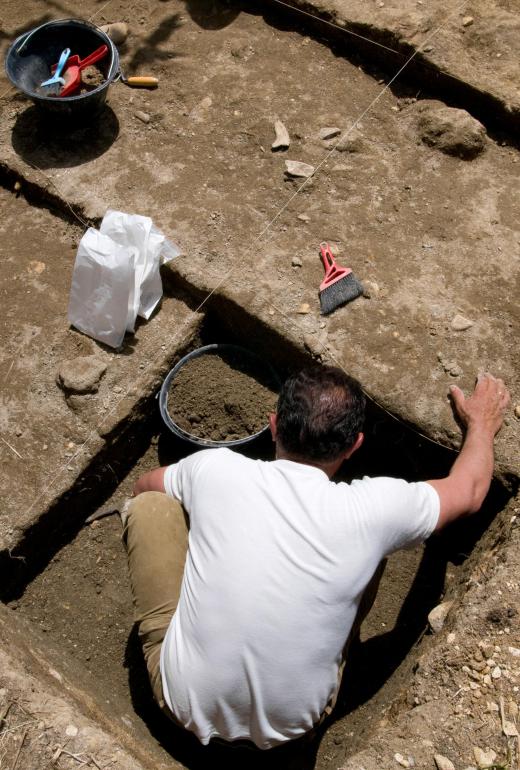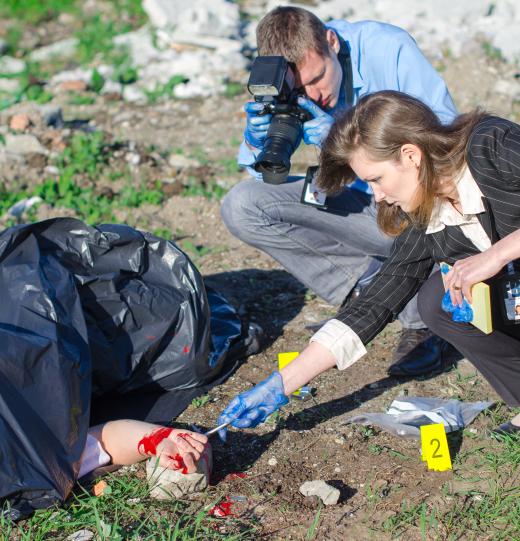What is Field Work?
Field work refers to the portion of a job, or educational program, that occurs at a remote work site, rather than at the worker's usual lab or office. It often involves researching a specific geographic location, building, or group of people in order to compile needed information. It is an important component of many jobs. Some examples include a chemist or biologist who goes to the site of a chemical spill to take soil samples and determine the extent of contamination; or an auditor who spends two weeks at a client's site, ensuring that all financial records are in order.
Occupations in the social sciences often contain a field work component. Archaeologists study ancient cultures by excavating sites, or digs, as do paleontologists and physical anthropologists. Cultural anthropologists study societies, often by living with the people in the society and participating in their community activities and rituals. The field notes taken during these visits, along with any artifacts recovered, are later analyzed and compared with data from other sites to increase our understanding of other cultures and of the peoples that came before us.

Field work can also be a practical exercise rather than an academic one. Electrical and structural engineers and project managers must often visit a site to evaluate existing conditions, take measurements, and record data prior to planning construction or remodel projects. Architects may visit the site of a future bridge or building before drawing up plans. The information obtained during these field sessions is critical to ensuring that the project will be successful.

Business professions also use field work. This is particularly true in marketing, where observing customer behavior firsthand can provide deep insights into industry strategy. The market researchers that people often try to avoid in malls and grocery stores are actually conducting important field work. The notes from their customer interviews tell manufacturers and retailers how they can best meet customer needs and expectations. Marketing field work can also mean observing and tracking traffic patterns, or silently observing customer reactions to a new display, promotion, or product.

A number of higher education programs require the completion of field work before the student can receive her degree. Most clinical medical fields, including nursing, physical therapy, radiology, and all disciplines of doctoring, require the student to work an internship in a clinic, doctor's office, laboratory, or hospital. Future educators must also complete a student teaching component in an actual school prior to graduation.
AS FEATURED ON:
AS FEATURED ON:














Discussion Comments
@aplenty- Your best bet would be to meet with a capstone adviser at your school. They can advise you to what types of fieldwork would most help you accomplish your goals.
I am trying to pick my capstone project for my bachelor’s degree and I cannot decide what I want to do. I have the option of a thesis, internship, a research project, a practicum, or a seminar with one of the top chief executive officers in the industry I am trying to break into. I am going into the energy industry and am focusing on renewable energy. I plan on going on to graduate school when I am finished, but will most likely stop after earning a Master’s degree in energy and resource management.
My career aspirations involve research and development, and will likely require plenty of fieldwork. Does anyone have any recommendations? Why? I would like something that is challenging, will look good to a graduate school entrance adviser, and will give me practical experience.
Post your comments